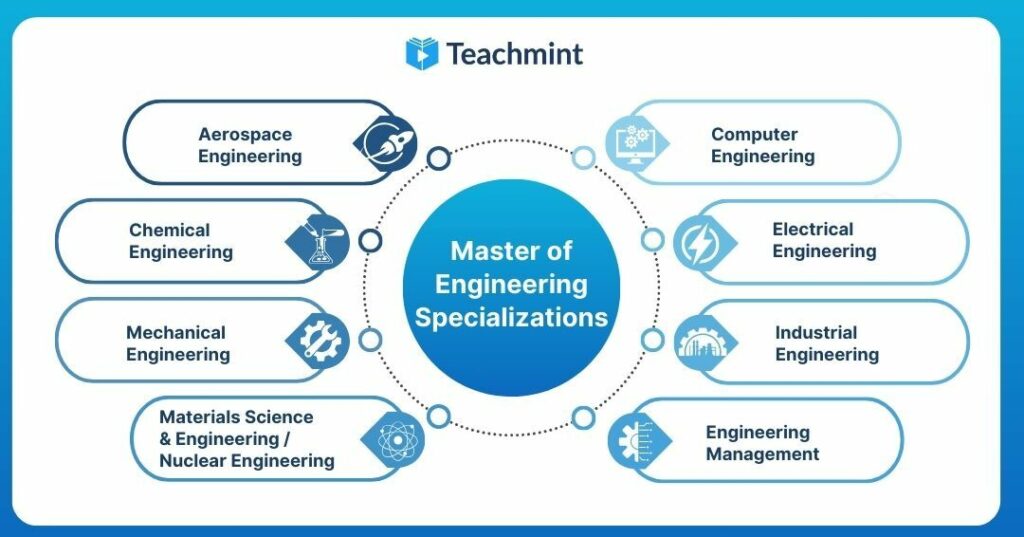In the ever-evolving landscape of engineering, professionals seek continuous growth and specialization to stay ahead in their careers. One of the most esteemed avenues for advanced education in this field is the Master of Engineering (ME Full Form) degree. Offering a blend of technical expertise, research opportunities, and professional development, the ME program equips engineers with the skills and knowledge necessary to tackle complex challenges in today’s world.
Understanding the ME Degree
The Master of Engineering degree is a postgraduate qualification that provides in-depth knowledge and expertise in a specific branch of engineering. Unlike the more research-oriented Master of Science (MS) degree, the ME program focuses on practical applications and real-world problem-solving. It is designed for engineers who aim to advance their careers in industry or pursue leadership roles.
Curriculum and Specializations
ME programs typically offer a diverse range of specializations, allowing students to tailor their studies to their interests and career goals. From civil and environmental engineering to electrical and mechanical engineering, students can choose from various fields based on their passion and professional objectives.
The curriculum of an ME program is carefully crafted to provide a balance between theoretical knowledge and hands-on experience. Courses cover advanced topics in engineering principles, design methodologies, and cutting-edge technologies relevant to the chosen specialization. Additionally, students often engage in practical projects, internships, or industry collaborations to gain practical exposure and build valuable skills.
Advantages of Pursuing an ME Degree
- Advanced Expertise: The ME program delves deeper into specialized areas of engineering, allowing students to develop a high level of expertise in their chosen field. This advanced knowledge is highly valued by employers seeking professionals with specialized skills.
- Career Advancement: A Master of Engineering degree opens up opportunities for career advancement and progression. Whether aiming for managerial roles, technical leadership positions, or entrepreneurship ventures, ME graduates are well-equipped to take on greater responsibilities and challenges.
- Industry Relevance: ME programs are designed in collaboration with industry partners to ensure relevance to current trends and demands. Students gain practical insights into industry practices, emerging technologies, and market dynamics, making them highly sought-after by employers.
- Networking Opportunities: Through interactions with faculty, industry experts, and fellow students, ME programs offer valuable networking opportunities. Building connections within the engineering community can lead to internships, job placements, and collaborative projects, enhancing career prospects.

The ME Degree in Practice
To understand the real-world impact of the Master of Engineering degree, one needs to look at the success stories of its graduates. ME alumni are making significant contributions across various industries, driving innovation and addressing complex challenges.
Take, for example, Sarah, an ME graduate specializing in renewable energy systems. Armed with advanced knowledge in sustainable engineering practices, she works for a leading solar energy company, designing efficient photovoltaic systems and implementing renewable energy projects. Sarah’s expertise not only contributes to environmental conservation but also aligns with the company’s mission to promote clean energy solutions.
Similarly, James, an ME graduate with a focus on robotics and automation, leads a team of engineers at a manufacturing firm. His in-depth understanding of robotic systems and automation technologies has streamlined production processes, improved efficiency, and reduced operational costs for the company. James’s expertise exemplifies the practical applicability of an ME degree in driving innovation and enhancing productivity in the manufacturing sector.
Conclusion
In a rapidly changing world where engineering plays a pivotal role in addressing global challenges, the Master of Engineering degree stands as a beacon of excellence. By offering specialized knowledge, practical skills, and industry-relevant experiences, ME programs empower engineers to become catalysts of innovation and progress.
As we look towards the future, the demand for skilled engineering professionals will continue to grow, making the ME degree more valuable than ever. Whether aspiring to advance in their current careers or embark on new ventures, engineers with an ME qualification are poised to make significant contributions to society, industry, and beyond.
Learn more about Teachmint plans here.
